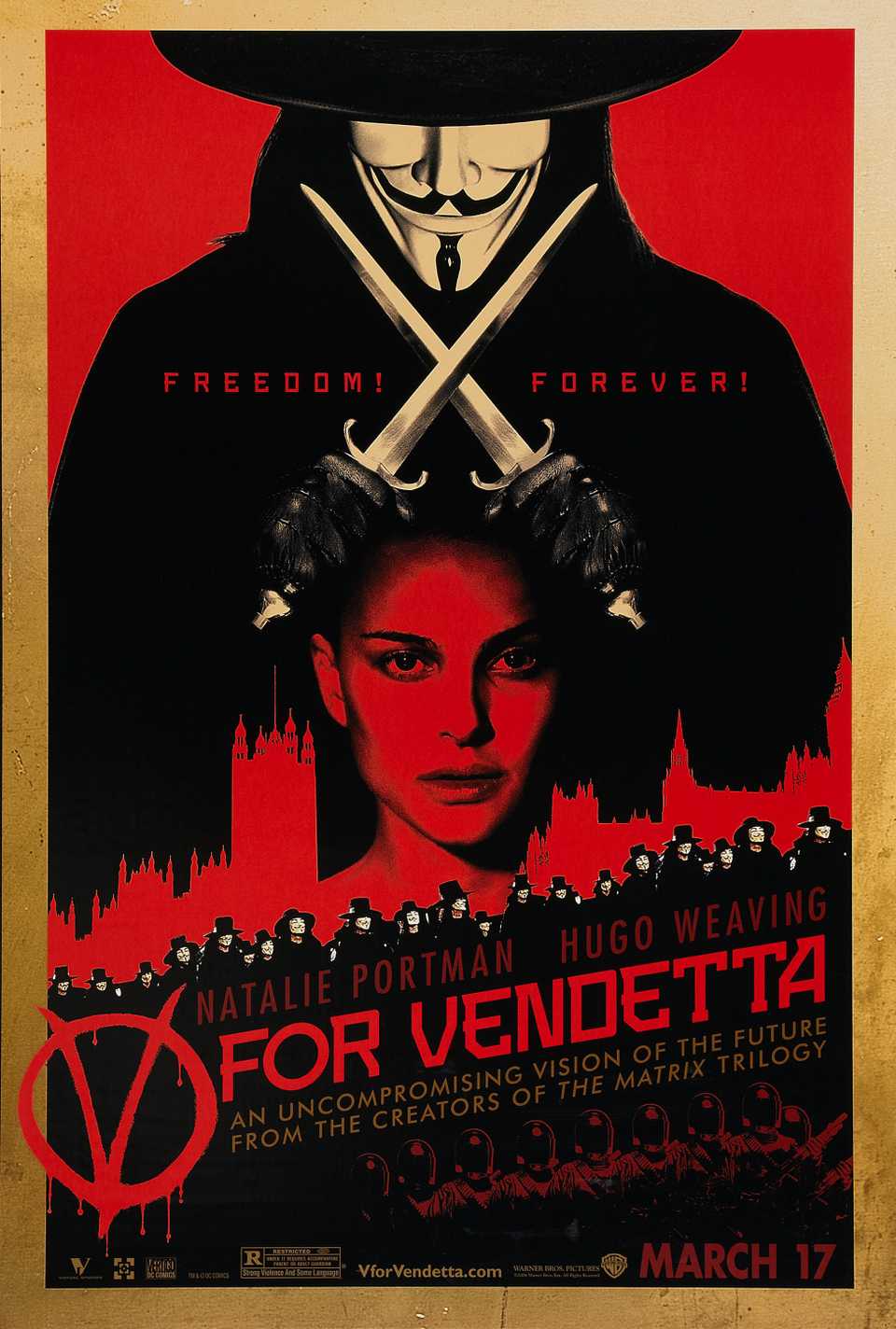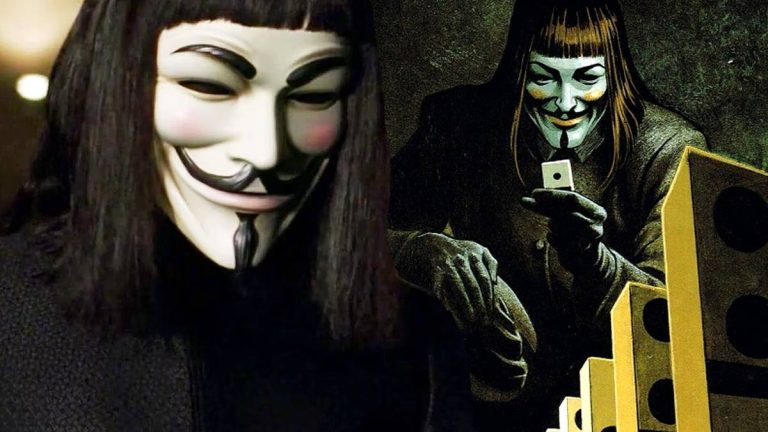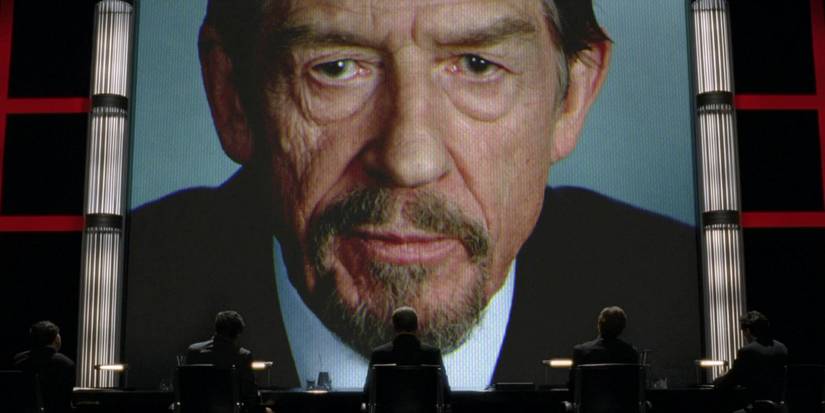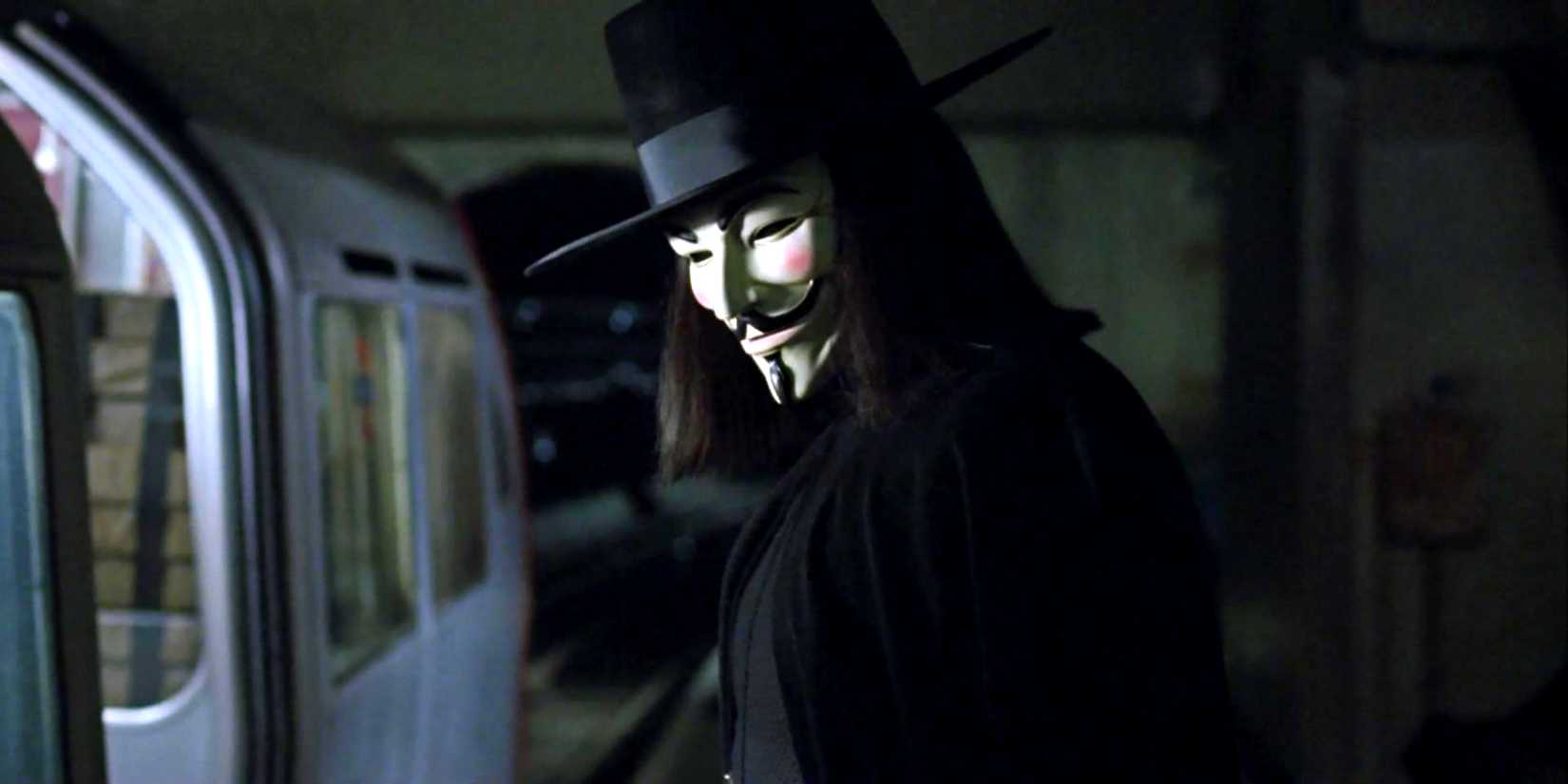A new adaptation of V For Vendetta is on the way from DC Studios, reportedly bringing Alan Moore’s powerful tale of state authority to its own HBO TV series. And while the previous film adaptation earned accolades, a V For Vendetta TV show can right one of the movie’s biggest wrongs, including a key comic storyline it left out of the film.
The V For Vendetta movie successfully captured Alan Moore’s prediction of the surveillance state, but completely removed the ‘Fate’ super-computer. A piece of futuristic technology whose power (and relationship with the fascist government’s leader) so powerfully predicted the modern age, the new TV series simply needs to include it.
V For Vendetta’s ‘Fate’ Computer is Its Most Powerful Prediction
The Concept of An All-Surrounding, Reality-Warping, Digital Reality Was Prophetic
In the original V for Vendetta graphic novel by Alan Moore and David Lloyd, the fascist Norsefire government builds its super-computer Fate as a means of turning the UK into an unparalleled surveillance state. Over time, the party’s leader Adam Susan develops quasi-religious, erotic feelings for the machine.
By excluding Fate from the film adaptation, the Wachowskis stopped short of recognizing the role technology would play in the future of politics. With the rise of social media in all cultural conversations and political arenas, the idea of the nation’s leader falling in love with an all-knowing, all-seeing, artificial program is so commonplace, it loses much of its satirical ‘shock’ value.
While political dissenters have adopted the film’s version of V’s iconic mask in rebellion, Fate deserves more comparisons in the modern age of political paranoia. After all, it is Norsefire’s substitute for divine omniscience and infallibility, entirely removed from justice, that seems to have predicted the rise of Q, the conspiratorial creator of the QAnon movement.
Both ‘V’ And ‘Fate’ Help The Series Challenge Superhero Culture
The Tradition of Superheroes Can Also Create Entities Like QAnon
While Moore could not have been making such a specific prediction with Fate at the time the comic was created, he evoked the specter of his own fictional allegory when speaking with Screen Rant, discussing what he views as the harmful effects of “superhero logic” upon the culture:
“I think that when you get that actually playing out in peoples’ political thinking, then you get something like QAnon. You get a completely invented, imaginary threat that we can only get saved from by a completely invented, imaginary hero.
“It’s when you’ve got the thinking that pervades third-rate superhero comics actually being allowed to govern consensus reality, the one that we all have to live in, that’s when you’re going to get things like the January the 6th Capitol Invasion, y’know?”
Moore has long explained the creation of V for Vendetta’s eponymous terrorist revolutionary, “V,” as a satire of the concept of the classic superhero. An anarchist whose bizarre, violent campaign against Norsefire results in the collapse of the regime, and what’s left of UK society along with it. And as a result, his own ideology must also be suspect.
Moore clearly sees a connection between the distorted concept of heroism in V for Vendetta and the current QAnon-style of political discourse, where an unseen, “masked and heroic” figure is celebrated as a force of justice. In a way, V becomes a mirror of his fascist adversaries in Norsefire, one of the many tragedies of the series.
The V For Vendetta TV Show Can Finally Use Fate in The Story
Fate’s Metaphor For Modern Social Media & Punditry Make It A Must For The TV Series
Admittedly, the Fate subplot in V for Vendetta may have been difficult to include in the context of a film adaptation. But the same may not necessarily be true of what a future TV adaptation could achieve. Among the super-computer’s other purposes in the series, V is able to hack Fate’s system, in order to warp Adam Susan’s reality, driving the infatuated leader insane with fabricated reciprocations of his “love.”
This blurred line between a computer program’s version of the world, and the reality its user wishes to see reinforced is one modern audiences continue to see explored in films like Her, Blade Runner 2049, Ex Machina, and more. If nothing else, the basic concept of Fate is so relevant to how V for Vendetta relates to contemporary politics, its lack of an on-screen depiction would be a massive missed opportunity.
With the internet facilitating the spread of misinformation and rise of demagoguery even more dramatically than in the era the film was created, Alan Moore’s twisted classic comic V for Vendetta is still achingly relevant forty years on.

- Release Date
-
March 17, 2006
- Runtime
-
132 minutes
- Director
-
James McTeigue







